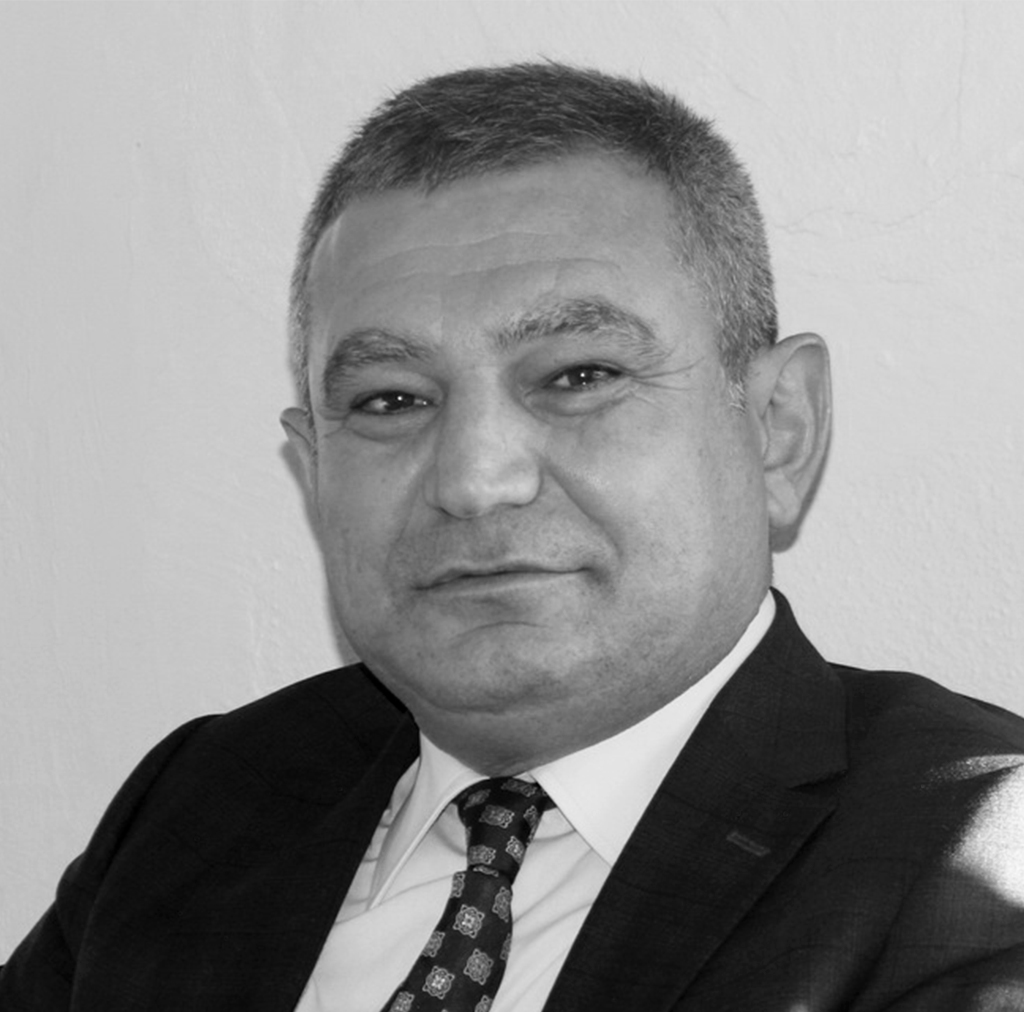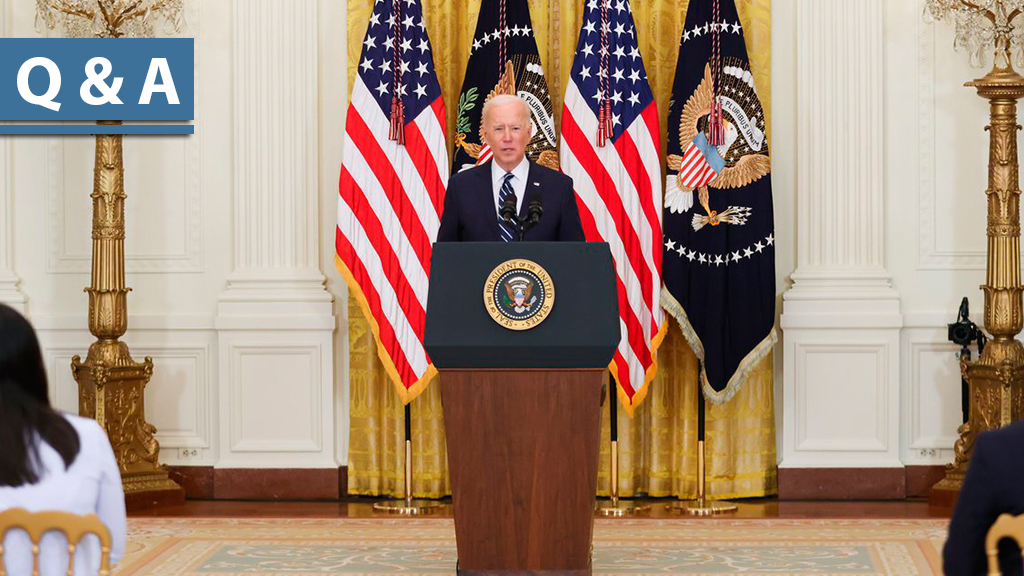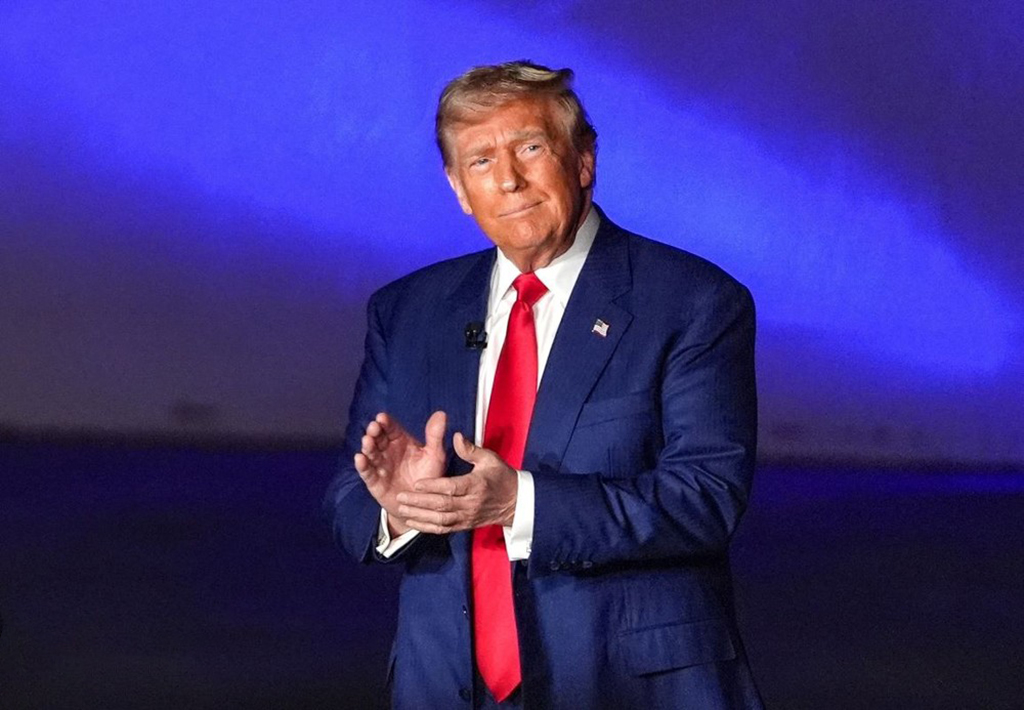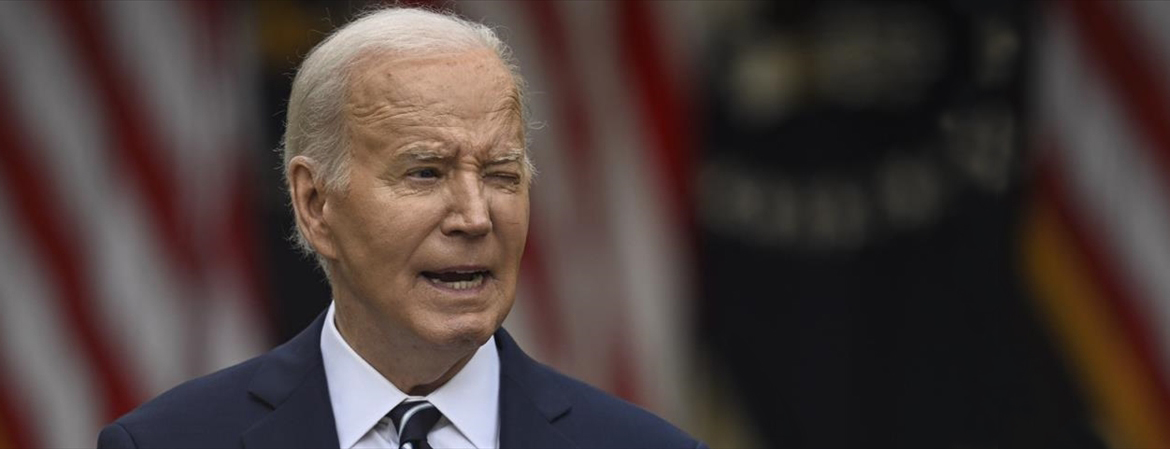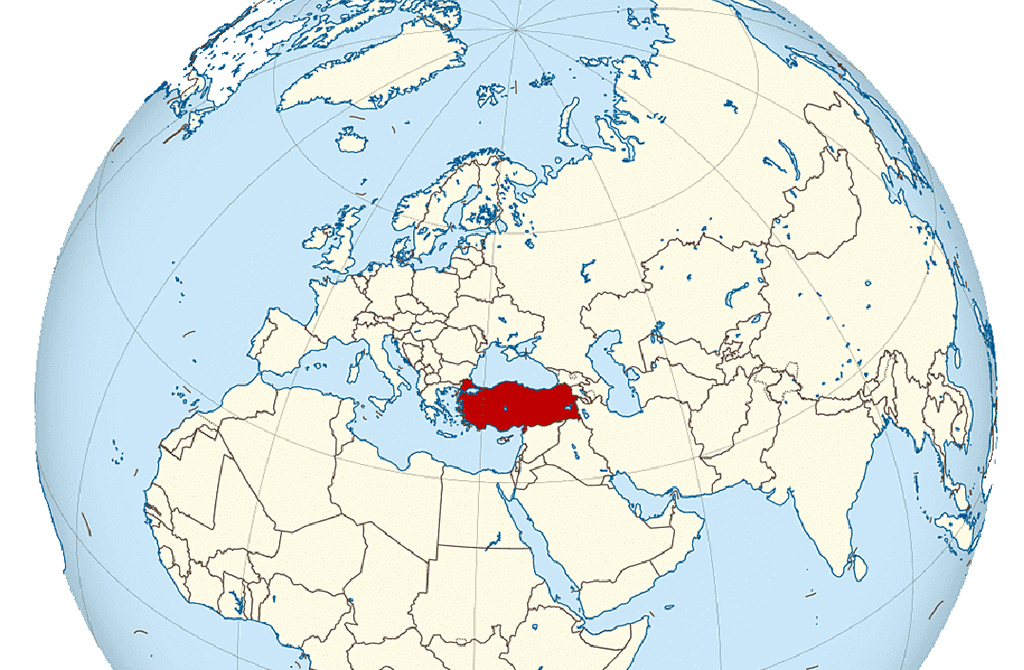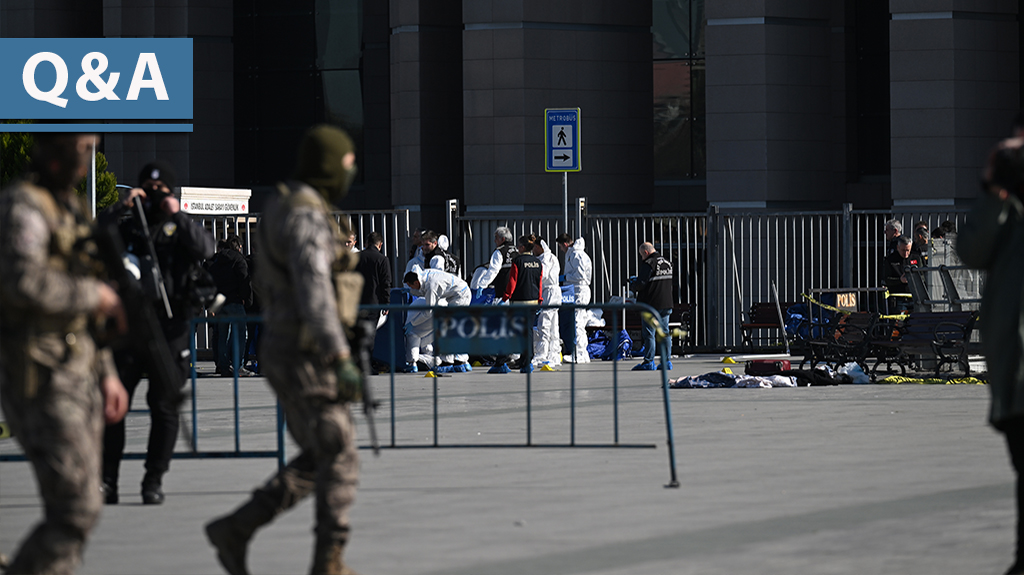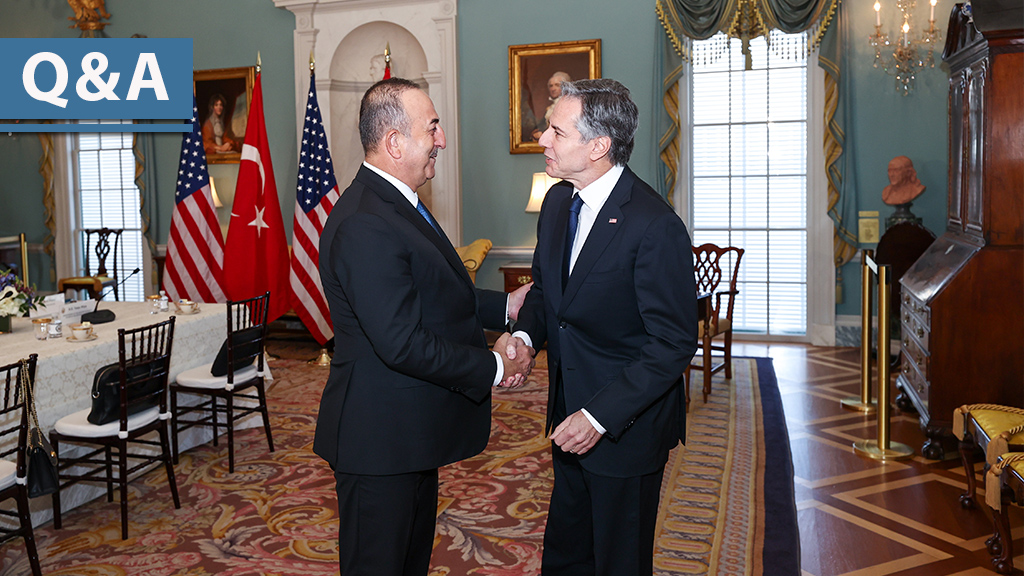Whether or not U.S. presidents will use the term “Armenian genocide” in their statement on April 24 regarding the Ottoman Armenians who died in 1915 has been a critical item on Turkey’s agenda since 1993. Other than stirring up public opinion, the issue is given a lot of attention by the public in Turkey and the Republic of Turkey spends a significant amount of effort on this point. As a former Turkish diplomat who was officiated in the U.S. explains, a sizable part of the work ofthe Embassy of Turkey in Washington, D.C. is to ensure that the U.S. presidents do not use this term in their commemoration messages.
Every year, there are two important questions regarding Turkey’s agenda on this issue. The first is whether the inclusion of the phrase “Armenian genocide” in the U.S. president’s commemoration message is lawful. This gives rise to two further questions: Is there a historical reality that would lead to the description of the 1915 events as genocide? And,does a political authority have the power to decide on this issue?
The second important question is whether it is appropriate, or right, for Turkey to take the issue soseriously and to followup seriously. In fact, this question means exposingthe consequences of the phrase “Armenian genocide” in the message of the U.S. president both in the U.S. national jurisdictional arenaand in the international political and justice system.
- What is the importance for the Armenians of the “Armenian Genocide” allegations?
Beginning in the mid-1800s, the Ottoman Armenian community carried out riots and took actions demanding rights and independence. There were 38 major events and riots by the Armenians between 1882 and 1904. About 31 of these were large-scale Armenian-led revolts including the first and second Sasun Revolts (1894, 1897), the Zeitun Rebellion (1995), and the Adana Revolt (1909). The social structures behind these events were primarily the societies and associations established by the Armenians outside or within the Ottoman lands. These structures include the Black Cross Committee founded in 1878 in the Eastern Turkish province of Van, the Motherland Protectors Association (
Anavatan Müdafileri Derneği, Pashtpan Haireniats) established in the Eastern Turkish province of Erzurum in 1881, and the Armenian Revolutionary Federation established again in Van in 1885.
Under the special circumstances of World War I, the tension between the Armenian community and the Ottoman administration and Muslim community escalated even more, and the state implemented relocation andother measures. “Remembered” by the Armenians every year, April 24 is referred to as the “beginning of the genocide” with reference to the arrest of prominent figures of the Armenian community on April 24, 1915, ordered by Minister of Interior Talat Pasha. With the decision taken on May 27, 1915, during the war, the “Transfer and Resettlement Order” (
Sevk ve İskan Emri) was applied to the Armenians, and many Armenians were dispatched to present-day Syrian territory.
It is afact that what happened caused understandable suffering to the Ottoman Armenian community. The suffering, the conditions of the period particularly, and the losses of the Ottoman Armenians in various skirmishes have been narrated for generations.
However, the issue that emerged over these understandable pains, gradually in the 1960s turned into an identity constituent for the Armenian community when the aforementioned events were taken out of the frame of reality to some extent. In the 1960s, the problem wasmorphed into an understanding of “being subjected to a genocide by the Ottoman Empire” which came to become a primary, common element of all Armenians living in various parts of the world. The acknowledgement of the “Armenian genocide” by the whole world, and particularly by Turkey, has practically become the only shared goal of Armenians. In fact, in the eighth of his article series entitled “On the Armenian Identity,” written between November 7, 2003 and February 13, 2004, the deceased Turkish-Armenian journalist Hırant Dink criticized the structuring of the identity of the Armenian community based on this feature, and advocated the creation of a true Armenian identity by the elimination of this feature.
There are also efforts to consolidate this version of events in certain pro-Armenian discourses whereby Turkey is alleged to “be killing the Armenians for a second time” by not recognizing the so-called Armenian genocide (See Julia Pascal, “A People Killed Twice”,
The Guardian, January 27, 2001). In such discourse, the way of handling the issue is kept away from solution settings in so far as the latter do not suit the purpose of the Armenian lobby. For instance, the pro-Armenian advocates prefer to present lawsuits for indemnity or abandoned properties (
emval-i metruke) before the U.S. courts instead of Turkish courts for reasons that will be discussed below.
The “genocide” issue, which has gained such an importance for the Armenian community, is voiced more frequently in countries heavily populated by the Armenian diaspora, such as the U.S. and France. Associations, lobbying activities, and educational material exist for this purpose, and branches of art including cinema, visual arts, and literature are used to this end.
The so-called Armenian genocide allegations are often brought to the agenda during critical national political periods in the U.S. and the allegations have become an invariable subject matterfor presidential candidates in the election process.
- What are the characteristics of the concept of genocide?
Contrary to popular belief, the concept of genocide is notold. After World War II, in 1944, the concept was first coined by the Jewish jurist Raphael Lemkin in the book entitled
Axis Rule in Occupied Europe concerning the incidents in the war. Genocide was also defined in Lemkin’s article entitled “Genocide as a Crime under International Law” published in 1947. From then onward, efforts in the international community increased so that the elimination of its own citizens by a state would not remain a matter of internal affairs. The United Nations General Assembly unanimously condemned genocide by adopting a draft resolution on December 11,1946 (which became General Assembly Resolution 96(I)) as a result of the efforts of the Sixth Committee and its subcommittee. Following this, the “Convention on the Prevention and Punishment of the Crime of Genocide” was ratified by the UN General Assembly in Resolution No: 260 A (III) on December 9, 1948 and opened to signature. The convention entered into effect on January 12, 1951. Turkey approved the convention on March 23, 1950.
The convention introduces a legal definition of genocide as “any of the acts committed with intent to destroy, in whole or in part, a national, ethnical, racial or religious group”. Acts that are deemed as genocide are “killing members of the group”, “causing serious bodily or mental harm to members of the group”, “deliberately inflicting on the group conditions of life calculated to bring about its physical destruction in whole or in part”, “imposing measures intended to prevent births within the group”, and “forcibly transferring children of the group to another group.”
In addition, the convention holds states liable for the prevention and punishment of the crime of genocide, andstates that the party states must enact the necessary legislation, in accordance with the procedure stipulated in their constitution, to ensure effective punishment especially for those found guilty of genocide or of the acts specified in Article 3. Therefore, party states have to make the crime of genocide a part of their domestic law and authorize their national courts for ruling in the relevant trials.
The convention authorizes the International Court of Justice (ICJ), not a parliament or any other similar political institution, to rule on whether the states violate these obligations. As a striking example, on March 20, 1993, Bosnia and Herzegovina instigated proceedings against the former Federal Republic of Yugoslavia (and later against Serbia).
As can be seen, the concept of genocide was born and established as a legal concept with a criminal nature, and naturally, the decision-making authority concerning genocide was granted to national and international adjudication. Legal evaluations are required to determine the crime of genocide; it is necessary to determine whether intention, action, and the consequences of this crime were present and occurred.
In fact, in the genocide case decision regarding Bosnia-Herzegovina vs. Serbia, the ICJ stated that although there were mass killings in the camps in Bosnia and Herzegovina, there was no evidence to prove that the acts were committed with the intention to “destroy in whole or in part,” and that the crimes committed did not constitute a genocide. On the contrary, the court ruled that in Srebrenica, in July 1995, there was clear evidence of a genocide in the killing of 7,000 Bosnian men in the “safe zone,” and in the mass murders, torture, rape, and disappearances of more than 40,000 persons. In the case of Srebrenica, the ICJ ruled the acts were committed with the “intent to destroy.”
- Is U.S. President Biden’s decision to recognize the “Armenian Genocide” lawful?
It should first of all be noted that other than ensuring the inclusion of the expression “Armenian genocide” in the messages of U.S. presidents, the Armenians have resorted to other political strategies as well. Towards the end of 2019, a bill for this purpose was first approved by the U.S. House of Representatives and then unanimously approved by the U.S. Senate, the upper chamber of the United States Congress, on December 12, 2019.
However, immediately afterward, on December 17, 2019, then president Donald Trump announced that he did not agree with the decision regarding the “Armenian genocide” and thus, the draft bill failed to gain binding force. Speaking on behalf of the Trump administration, Spokesperson Morgan Ortagus stated that “the attitude of the administration has not changed” and that they did not consider the 1915 events as genocide. Last year, President Trump again used the term “Medz Yeghern”(Great Catastrophe) in his April 24 message.
As seen above, genocide is an internationally and legally defined category of crime. Therefore, in order for a certain act to qualify legallyas genocide, it is necessary that it meets certain basic principles. The first of these is the principle of non-retroactivity of the rules of criminal law. Evaluating the events that took place prior to 1951, to be precisein 1915, based on a concept of a crime thatentered into legal force in 1951 is fundamentally against the principle of non-retroactivity of crime and punishment, which is one of the oldest, fundamental principles of law. That is why the events of 1915 cannot be taken to court despite the fact that Article 9 of the 1951 convention, to which Turkey is a party, established the mandatory jurisdiction of the ICJ for the crime of genocide.
The second basic principle is that whether an action constitutes a crime of genocide is to be decided only by independent and impartial persons or institutions; in other words, judicial institutions. That explains why the 1951 convention delegates the authority to the International Court of Justice for interstate genocide cases and to the national courts for individual criminal prosecutions. Therefore, the decisions concerning related allegations made by individuals or institutions that do not have these qualifications (and without due judicial process) are entirely political and, therefore, unlawful.
And thirdly, no state, as a legal identity, can be tried in the national courts of another state. This is a requirement of the fundamental principle of the sovereign equality of states in international law. This is to say that, it is against this basic principle of international law for any U.S. administrative or judicial institution to make the Republic of Turkey a subject of U.S. jurisdiction. Any possible decision to this effect will be contrary to international law and is not binding for Turkey.
Consequently, the use of the term “genocide” by U.S. presidents is
null and
void in international law, and stands out merely with its political value. That is why President Biden has termed the events as “genocide” while previous U.S. presidents did not use this term for the very same events. Similarly, parliaments and political leaders of other countries have taken such politically motivated decisions on the alleged “Armenian genocide” despite the existence of the fundamental legal principle requiring such decisions be taken by independent and impartial judicial institutions.
- Should Turkey continue to take the issue seriously?
Despite its legal weakness or even invalidity, the statement of President Biden is, however, politically significant in the international arena as it reflects the official stance of the United States at present. This statement may eventually encourage other states or international organizationsto make similar statements, which could eventually have political effects on Turkey. Moreover, the statementmay create a ground for the Armenian circles or lobbies in the U.S. to press the U.S. administration to ensure the widespread acknowledgement of the “Armenian genocide” across the world or to put pressure on Turkey on this matter.
Apart from the above political reflections,the statement may have legal significance within the U.S. national jurisdictional arena. U.S. courts appear to play a “leading role” in taking into account the claims for compensation resulting from crimes that were allegedly committed long ago in foreign countries and therefore to act as a “legal platform for dispensing global justice.”
The efforts of the Armenian-Americans, especially in the state of California, led to the enactment of local legislation that enables the above lawsuits. The Californian legislation regarding the “victims of the Armenian genocide” relates to claims for insurance payments, bank deposits, and payments deposited in banks in connection to looted properties. It is evident that the term “victims of the Armenian genocide” is purposefully used, although the claims for such compensations or payments could be carried out without referring to the concept of genocide at all.
Based on such legislation, Armenians have filed lawsuits in certain U.S. states against the Republic of Turkey, the Central Bank, and the Ziraat Bank of the Republic of Turkey. The remarks of the U.S. president referring to the events of 1915 as “genocide,” may strengthen these casesand especially those made over property.
The main legal principle discussed above continues to hold true here. These cases violate at least one of the basic legal principles stated above which ensures the immunity of a state from the jurisdiction of any other state. However, these unilateral and, therefore, illegitimate legal processes are carried out throughthe exceptions in the “Foreign Sovereign Immunities Act” (FSIA) to enable local courts to try foreign states in clear contradiction tothe discussed basic principle of international law.
Consequently, it should be emphasized that the main purpose here seems to be to use U.S. courts to put pressure on Turkey on the issue of the “Armenian genocide” towards indemnity claims and even territorial demands despite the fact that there is no underlying evidence or competent courts. In the end, the statement of President Biden creates an instrument that can continuously be used against Turkey for defamation, indemnity claims, and even territorial demands.
- What is Turkey doing and what more should it do about the issue?
Turkey has made many efforts and continues to do so to ensure that the “Armenian genocide” discourses do not become widespread and are not used unjustly against Turkey.
In 2010, two protocols were signed between Turkey and the Republic of Armenia. The “Protocol on Development of Relations between the Republic of Turkey and the Republic of Armenia” was signed in Zurich on October 10, 2010, and required the establishment of expert committees to deal with the genocide allegations on the basis of historical and legal facts. However, these protocols were approved by the Armenian Constitutional Court in 2010 but with restrictions, upon which these protocols were suspended at the end of 2010 and cancelled altogether in 2018 by the Armenian administration.
Looking to the future, Turkey should take the necessary steps to ensure that the statement by President Biden is overturned next year. In any case, Turkey should exert efforts to persuade President Biden not to reflect this statement on U.S. foreign policy decisions or attitudes. Considering the fact that the statement is of a political nature, any political measure by Turkey will be beneficial towards its withdrawal or inactivation.
Moreover, Turkey should press on towards evaluations of all allegations over the events of 1915 through independent legal forums. Considering that the so-called Armenian genocide allegations are historically and legally weak, it would be wise for Turkey to take the issue to independent commissions or judicial bodies. Such action would prevent any political interreference by foreign countries on this issue. With the resolution of the Karabakh problem, it is now possible for Turkey to review its relations with Armenia and handle these allegations jointly through impartial commissions.
